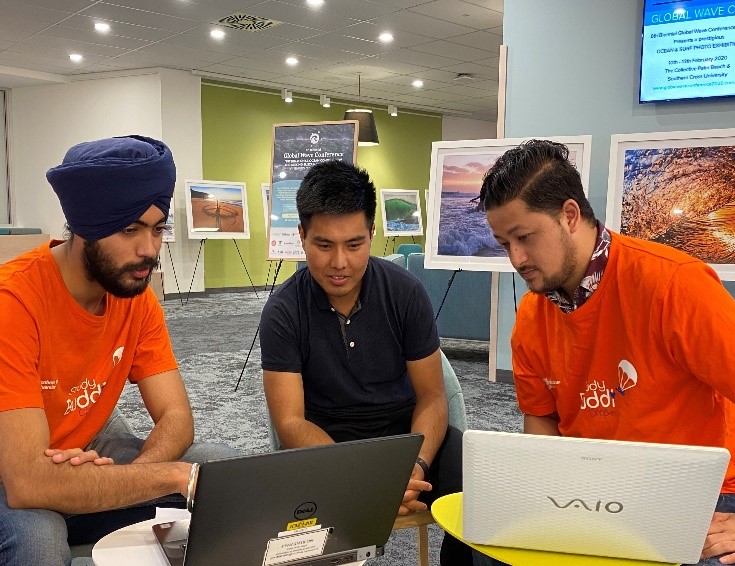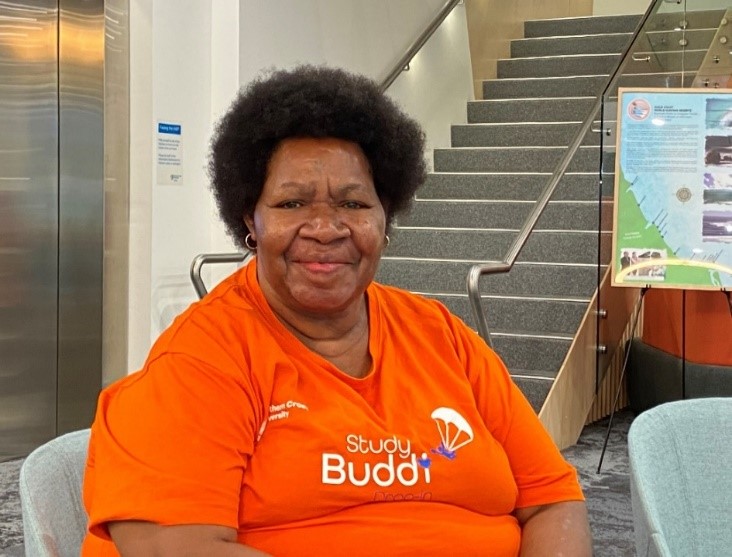Leveraging Diversity as Peer Role Models – Southern Cross University
Diversity at university is increasing with widening demographics including more international enrolments. Many students from these wider demographics face a challenge to adjust to first year academic culture and meet the standards required.
The Study Buddi program at Southern Cross University has a diverse team of peer leaders to assist the study needs of all students. Study Buddi members are student leaders from various disciplines and backgrounds who represent near-peer role models (Murphey & Arao, 2001). Study Buddi team members include an Australian Award Scholarship winner from Papua New Guinea doing her Master of Professional Accounting. As a competitive scholarship winner, she is an exemplary role model for other PNG students as well as any accounting and international students. Other Study Buddi international team members include a Master of IT student from Kathmandu, Nepal; a Business Accounting major from Punjab, India; a Tourism major from Austria; and a Bachelor of Accounting major from South Africa. These international Study Buddi team members infuse cultural know-how and represent successful international student leadership models to others.
The international student leaders build bridges across cultures, share intercultural tips and advice, and mutually learn from both domestic and other international students. Mesidor and Sly (2016) found that creating job opportunities for international students assists a sense of belonging and that peer programs promoted significant social adjustment for study. The positive student role models exhibit confidence, self-determination and ambition to succeed in a foreign environment.
Amelia, the international Study Buddi from Papua New Guinea said, ’‘International students can help fellow international students who need help and confidence-building. They can see us and understand that we are putting into action what we have learned, so it’s good to help the international student community. We can learn from them too.’’ Arshdeep from India says that he can “help students through the uncertainties and doubts when they first arrive which settles them in quickly so they know what to expect.” Bishal from Nepal states there are “lots of services in the university that are unknown to new students” and he enjoys advising them on the proper use of these facilities. Bridging the gap of academic culture and international learning as peer role models is a powerful approach to connecting a diverse student community.
Amelia finishes her degree in a few weeks and will return home to PNG by the time this article is published. Her experience has been invaluable as she competed for an international scholarship, rose to the challenge of international study and interacted with students from other parts of the world at Southern Cross University. Amelia is looking forward to returning home, working at Bank of Papua New Guinea and sharing her new skills and knowledge.
References
Murphey, T. & Arao, H. (2001). Reported belief changes through Near Peer Role Modeling. TESL-EJ, 5(3), 1-15.
Mesidor, J. K., & Sly, K. F. (2016). Factors that contribute to the adjustment of international students. Journal of International Students, 6(1), 262-282.
By S. Ashton-Hay, A. Gilawaii, B. Khatri and A. Singh, Southern Cross University


Amelia, Australian Award Scholarship winner from PNG, Master of Professional Accounting and Study Buddi

Leave a Reply